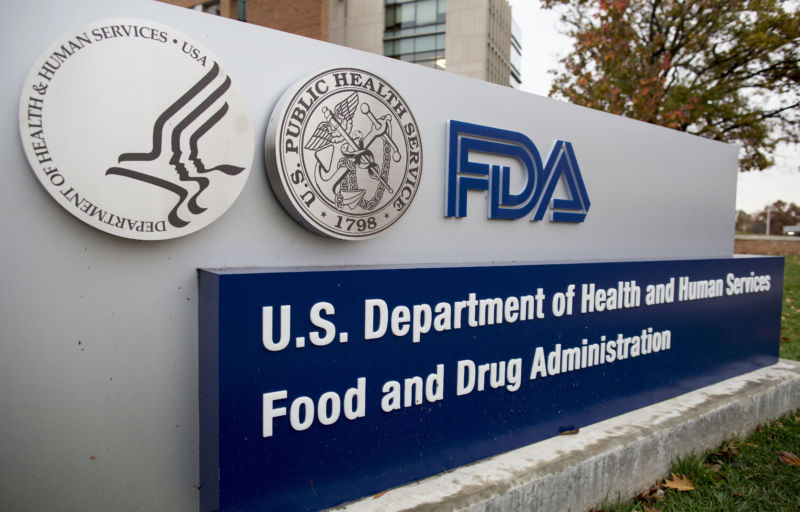
One patient has died and another became seriously ill after fecal transplants inadvertently seeded their innards with a multi-drug resistant bacterial infection, the Food and Drug Administration warned Thursday.
The cases highlight the grave risks of what some consider a relatively safe procedure. They also call attention to the mucky issues of federal oversight for the experimental transplants, which the FDA has strained to regulate. In its warning Thursday, the agency announced new protections for trials and experimental uses of the procedure.
The FDA shared minimal details from the deadly transplants. Its warning only noted that the cases involved two patients who were immunocompromised prior to the experimental transplants and received stool from the same donor. Subsequent to the transplant, the patients developed invasive infections from an E. coli strain that was resistant to a wide variety of antibiotics in the penicillin and cephalosporin groups. The E. coli strain carried a drug-defeating enzyme called an extended-spectrum beta-lactamase (ESBL), which generally cleaves a ring common to all the chemical structures of those antibiotics. When unnamed researchers who administered the transplant looked back at the donor stool, they found that the stool contained an identical ESBL-producing E. coli.
One of the patients died and the fate of the other was not discussed. The agency also did not say how or why the patients were immunocompromised prior to the transplants, what the transplants were attempting to accomplish, how they were carried out, who conducted the transplants, or when they occurred.
Pootential
Generally, fecal transplants (aka fecal microbiota for transplantation or FMTs) are intended to replace or replenish the microbial communities that thrive in the intestinal tract. Those microbial communities are thought to influence a variety of health factors, like breaking down food, cycling hormones, modulating immune responses, and protecting against hostile invaders. But these microbial communities can be beaten down or thrown out of a healthy balance (a condition called dysbiosis) by disturbances like potent antibiotic treatments or particularly tenacious pathogens.
Researchers hypothesize that microbe-laden stool from healthy donors can restore the equilibrium and beneficial functions of the microbiome in some patients, possibly by a wholesale repopulation of the gut microbiota or by boosting microbial diversity. Studies have indicated that this is the case for those with intractable intestinal infections caused by diarrhea-causing Clostridium difficile bacteria. Some trials have indicated that FMTs can cure 80% to 90% of these infections, though it’s still unclear how exactly they work. FMT-based treatments for other conditions, such as obesity, cancers, or immune disorders, are still hypothetical.
Mucky methods
Also experimental is the way to go about an FMT. Researchers have used hand-mixed fresh stool, freeze-dried nuggets, microbe-enriched excrement, and completely synthetic slurries. Delivery methods have included simple enemas, colonoscopies, poop-filled capsules that are swallowed, and tubes threaded through the nose down to the stomach.
All of this has presented a sticky regulatory issue for the FDA. The agency considers transplanted feces a drug and has asserted its regulatory authority over it as such. But FMTs smear the rules used for regulating standard drugs, which tend to have highly controlled, identifiable active ingredients that can be carefully quantified, formulated, standardized, and tested.
Varying transplantation methods aside, how does one control, quantify, and standardize poop? This is especially challenging since it’s still unclear which (if any) features of feces are or could be therapeutic. Are specific microbial strains key? Or combinations? Or concentrations? It’s all still undetermined. And unlike typical pharmaceuticals, which are purposefully concocted, dung can come with potentially harmful components, such as pathogens and toxins. How should poop be screened for those?
In July 2013, the FDA held a public workshop on the daunting subject, taking input from researchers, doctors, companies, and the public. The agency came away with the mushy decision to regulate FMTs with a light touch until there’s more data. As the agency puts it, it decided to “exercise enforcement discretion.”
With Thursday’s announcement, the agency’s role got a little firmer. The agency now says that FMT stool donors and stool itself need to be screened for multidrug-resistant organisms and excluded if they’re found to harbor any. A regulator with the FDA told the New York Times that the agency is also pausing clinical trials involving FMTs until it’s clear that they have such safety precautions in place. The regulator did not discuss how many clinical trials would be on hold, but the clinicaltrials.gov listed several dozen active trials involving FMTs.
https://arstechnica.com/?p=1522487

